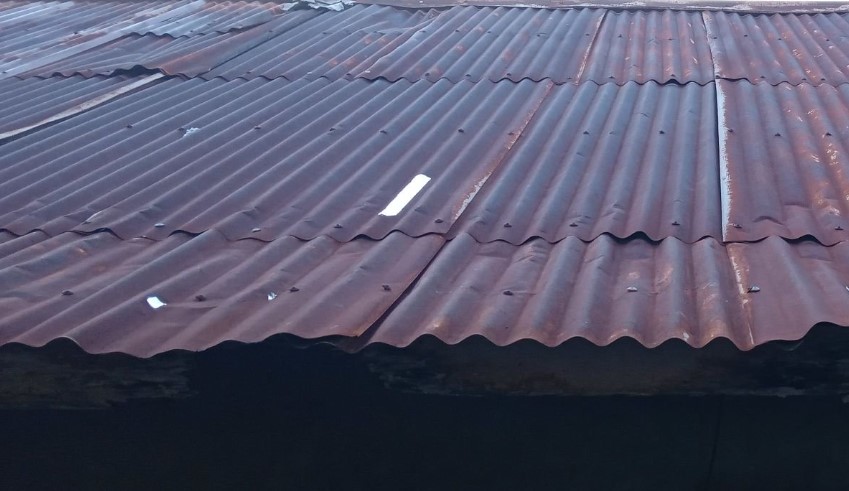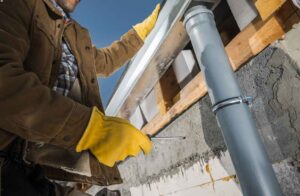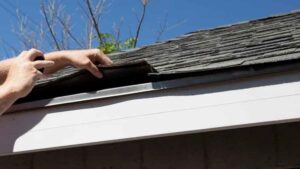Metal roofing has become a popular option for homeowners seeking durability, energy efficiency, and long-term performance. In Georgia, especially, metal roofs hold up well to heat, storms, and seasonal weather swings. But no roofing system is completely without flaws. So what are the biggest problems with metal roofs, and how can you avoid them?
At Crist Jr Roofing and Construction, we install and repair a wide range of metal roofing systems across Metro Atlanta—including Smyrna, Marietta, Kennesaw, and Dallas. While we believe metal roofing is one of the best long-term investments you can make for your home, we also believe in keeping customers fully informed. Below, we break down the most common issues homeowners may encounter with metal roofs and how to address them.
1. Oil Canning
One of the most misunderstood and frequently discussed concerns with metal roofing is oil canning. This is a visible waviness or distortion that can appear in the flat areas of metal panels, especially on standing seam roofs.
Why It Happens:
Oil canning often results from thermal expansion, improper installation, or manufacturing inconsistencies in the panel thickness or finish.
How to Minimize It:
- Use thicker metal panels with proper backing
- Select matte or textured finishes that disguise imperfections
- Ensure panels are properly installed with enough room for expansion
While oil canning doesn’t affect roof performance, it can impact aesthetics. Homeowners who want a flawless finish should discuss material options during the planning stage.
2. Expansion and Contraction
Thermal movement is natural in metal roofs, especially in regions like Georgia where temperatures can fluctuate dramatically between seasons—and even within a single day.
The Problem:
Repeated expansion and contraction can stress fasteners and seams over time. If the roof was not properly installed to account for this movement, it may lead to loose panels, fastener fatigue, or seam separation.
What to Watch For:
- Popping or creaking sounds as the roof heats and cools
- Loose fasteners or lifted panels after a hot day
Prevention:
- Choose floating clip systems for standing seam roofs to allow movement
- Use expansion joints on large or complex roofs
- Hire an experienced metal roofing contractor that understands thermal design
The U.S. Department of Energy emphasizes that while metal is reflective and energy-efficient, proper installation is essential to long-term performance.
3. Improper Fastening
Metal roofing fasteners play a critical role in the roof’s longevity. If the wrong fasteners are used—or if they’re over-tightened or under-tightened—the results can be costly.
Types of Fastening Issues:
- Over-driven fasteners that crush gaskets or strip holes
- Backed-out screws caused by movement or poor installation
- Incompatible materials leading to corrosion
Why It Matters:
Improper fasteners can lead to leaks, structural compromise, or premature roof failure.
Our Approach:
At Crist Jr Roofing and Construction, we always use corrosion-resistant fasteners designed specifically for your roofing system and climate. We also inspect each fastener during installation for proper torque and seal.
4. Noise During Rain or Wind
While many modern metal roofing systems include underlayment and insulation to reduce noise, some homeowners still report that metal roofs are noisier than other materials—especially during heavy rain or high winds.
What Causes the Noise:
- Lack of insulation beneath the roof deck
- Thin panels that amplify vibration
- Exposed fastener systems that allow movement
How to Address It:
- Add a high-quality underlayment and attic insulation
- Use heavier gauge metal panels
- Opt for standing seam systems with hidden fasteners for tighter connections
In most cases, when installed correctly, a metal roof isn’t significantly louder than asphalt. If noise is a concern, discuss insulation options with your contractor before installation.
5. Rust or Corrosion
Though metal roofing is known for its durability, corrosion is still a risk—especially if the roof is scratched, installed incorrectly, or exposed to moisture over time.
Common Causes:
- Improper material combinations (e.g., using steel screws on aluminum panels)
- Coastal environments with salty air
- Accumulated debris or standing water
Prevention Tips:
- Choose galvanized or Galvalume-coated panels for corrosion resistance
- Keep the roof clear of debris that traps moisture
- Avoid mixing dissimilar metals on the same roof system
According to the National Roofing Contractors Association (NRCA), using compatible materials and coatings is essential to prevent premature corrosion on metal roofs.

6. Installation Errors
Even the highest-quality metal roofing won’t perform if it’s poorly installed. Unfortunately, many of the biggest problems with metal roofs stem from unqualified or rushed installation.
Signs of Poor Installation:
- Uneven panel spacing
- Exposed fasteners in areas that should be concealed
- Gaps at seams or flashings
- Inconsistent panel overlap
Metal roofing requires precision and planning. Always hire a contractor who specializes in metal systems—not just general roofing.
7. Paint or Finish Fading
Over time, the color and finish of metal panels may fade or chalk due to UV exposure. This is a cosmetic issue, but for homeowners investing in a premium finish, it can be frustrating.
What to Know:
- Lower-quality coatings may degrade faster under intense sun
- Fading is usually covered under manufacturer warranties—but not always
Long-Term Solutions:
- Choose high-performance PVDF (Kynar 500®) coatings for UV stability
- Ask about manufacturer warranty coverage for fade and chalking
- Schedule routine inspections to catch early signs of coating breakdown
8. Limited Local Repair Experience
Although metal roofing is growing in popularity, not all contractors in Georgia have deep experience with it. That means finding a qualified metal roofing company can be more difficult—especially if repairs are needed.
What Can Go Wrong:
- General roofers may use incompatible sealants or tools
- Repairs may void warranties if not done correctly
- Incorrect patching can lead to hidden leaks or corrosion
At Crist Jr Roofing and Construction, we’ve worked extensively with both standing seam and metal shingle systems. Whether you’re repairing damage or considering a full replacement, we’ll do it right—every time.
Is a Metal Roof Still Worth It?
Despite the potential concerns, metal roofing remains one of the best options for Georgia homeowners. When properly installed and maintained, it delivers:
- 40–70 years of lifespan
- Fire and wind resistance
- Reflective properties that reduce cooling bills
- Low maintenance and strong warranties
The key is partnering with a knowledgeable contractor who understands the challenges and knows how to prevent them.
Let’s Make Sure Your Metal Roof Performs for Decades
At Crist Jr Roofing and Construction, we don’t just install roofs—we educate homeowners. Our team takes the time to explain your options, recommend the right system for your home, and ensure your roof is built to last.
Whether you’re dealing with one of the biggest problems with metal roofs or just considering your upgrade options, we’re here to help.
Our team is fully licensed, insured, and backed by real customer reviews throughout Metro Atlanta. We offer industry-leading warranties, clear communication, and materials selected specifically for Georgia’s climate.
Get a free inspection now and find out how we can help you protect your home with a metal roof done right.



